5 Signs You’re Overtraining and How to Fix It
Pushing harder isn’t always the answer. Overtraining can drain your energy, weaken your immune system, and derail your progress before you see results. Learn how to spot the warning signs early and recover smarter with strategies from a Doctor of Physical Therapy.
By Dr. Benjamin Glider, PT, DPT – Mobile Recovery Lab, Central NJ
Training hard is essential for progress, but more isn’t always better. When you push your body beyond its ability to recover, you risk injury, burnout, and a drop in performance. This is called overtraining, and it can sneak up on even the most dedicated athletes.
Here’s how to spot it early and get back on track before it derails your progress.
1. Persistent Fatigue
If you feel drained even after rest days, your body may be in a constant state of repair without enough downtime to fully recover. You may notice heavier legs, slower reaction times, and reduced motivation to train.
Fix it: Prioritize quality sleep, proper nutrition, and schedule active recovery days instead of stacking more intense sessions.
2. Declining Performance
If your lifts suddenly feel heavier, sprints are slower, or your endurance is dropping despite consistent training, it’s a red flag.
Fix it: Reduce training volume for a week and focus on mobility, stability, and technique work to rebuild a strong foundation.
3. Increased Injury Risk
More aches, tendon pain, or recurring strains can signal that your muscles and connective tissue aren’t keeping up with demand. Overtraining can cause chronic inflammation and tissue breakdown, making you more prone to injury.
Fix it: Incorporate soft tissue mobilization, targeted strength work, and recovery sessions to restore tissue health and resilience.
4. Mood Changes
If you’re more irritable, unmotivated, or even feeling depressed, it may be linked to nervous system fatigue from overtraining. This often shows up as mental burnout before physical breakdown.
Fix it: Take 2–5 days away from intense workouts and add stress-reduction strategies like breathing drills, meditation, or light outdoor walks.
5. Frequent Illness
If you’re getting sick more often or feeling run-down, overtraining may be weakening your immune system. Constant high stress from training can leave your body vulnerable.
Fix it: Pull back on intensity, eat nutrient-dense foods, hydrate well, and space out your intense training days.
How I Help Athletes Recover from Overtraining
At Mobile Recovery Lab, I use a combination of:
Functional movement assessments to find weak links
Dry needling, soft tissue mobilization, and active release to restore tissue health
Customized recovery plans to rebuild performance without risking setbacks
This approach doesn’t just get you feeling better—it gets you back to training smarter so you can perform at your best without constant setbacks.
The Takeaway
Overtraining is a performance killer, but it’s also 100% preventable. By recognizing the signs early and adjusting your training, you can train harder in the long run and avoid burnout.
Ready to recover stronger?
📍 Serving athletes and active adults in Central NJ
📅 Book your recovery session today and see how the right strategy can get you back to peak performance.
The Secret Weapon You’re Probably Ignoring- Recovery
Most athletes train hard—but few recover smart. Recovery isn’t just rest; it’s the key to unlocking performance, reducing injury risk, and pushing your limits. Learn why recovery should be your secret weapon.
You train hard. You grind. You push through soreness, fatigue, and plateaus chasing results. But here’s the truth most people overlook:
Recovery isn’t a break from progress. It is progress.
If your training is the stimulus, recovery is the response—and without it, you’re just wearing yourself down. Performance gains happen between sessions, not just during them.
Here’s why recovery matters:
1. You’re not building strength during your workout—you're breaking tissue down.
It’s during recovery that your body repairs muscle fibers, replenishes glycogen stores, and adapts to the demands you’ve placed on it.
2. Ignoring recovery increases your injury risk.
Fatigued muscles can’t stabilize joints as effectively. Skipping proper tissue work, mobility, or deloads can lead to nagging overuse injuries—or worse.
3. Better recovery = better training quality.
If you’re dragging through your workouts, constantly sore, or plateauing, it’s not a lack of effort—it’s likely a lack of recovery strategy.
What does smart recovery look like?
It’s not just foam rolling and hoping for the best. True recovery involves:
Targeted manual therapy to address restrictions.
Strategic mobility work and movement assessments to optimize mechanics.
Nervous system reset techniques (like dry needling, joint manipulation, and soft tissue work).
Deliberate rest and recovery protocols tailored to your training goals.
As an elite physical therapist, I’ve worked with athletes from all walks of life, and the common thread?
The ones who recover well, perform better. Period.
Recovery isn’t optional. It’s the foundation of longevity, resilience, and peak performance.
If you’re training like an athlete, you should be recovering like one too.
Let’s talk about how you can level up your recovery game.


